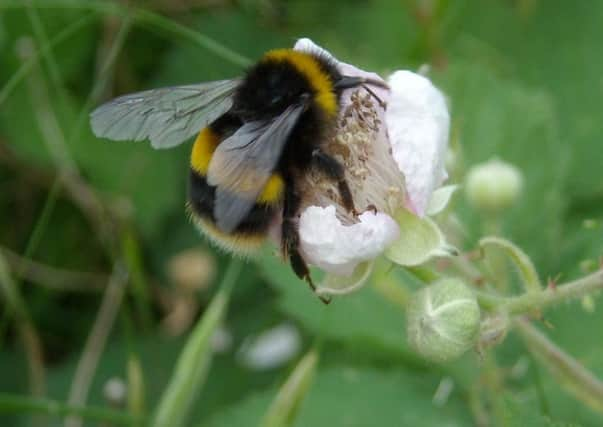Shift to greening distorts view of sensitive farming


Almost 269,000 hectares (ha) of land were under unpaid environmental management in 2014/15 cropping year, compared to nearly 453,000ha a year earlier - a fall of 41 per cent in 12 months - the findings of a survey by the Campaign for the Farmed Environment (CFE) show.
But changes to the EU’s Common Agricultural Policy (CAP) mean much of the voluntary work undertaken by farmers now falls under the policy’s new so-called ‘greening’ measures, which sees farmers receive grants to set aside five per cent of their land as Ecological Focus Areas (EFAs).
Advertisement
Hide AdAdvertisement
Hide AdBethan Williams, project officer at the CFE, said: “This survey doesn’t fully reflect all of the positive work that CFE delivers and that farmers are doing for the environment.
“This year CFE has focussed efforts on encouraging farmers to add environmental value to greening measures and provide habitats for pollinators.
“We are pleased that the survey shows an increase in farmers implementing pollen and nectar mixes voluntarily on their land and a significant number have enhanced EFA.”
The survey shows a 134 per cent increase in farmers implementing pollen and nectar mixes voluntarily on their land and that 43 per cent of farmers have implemented extra voluntary enhancements to EFAs.
Advertisement
Hide AdAdvertisement
Hide AdSam Durham, chief land management adviser at the National Farmers’ Union (NFU), also championed the efforts being made by farmers, saying: “The NFU is a big backer of the CFE initiative and the experience from CFE co-ordinators on the ground is that many farmers are addressing the challenges of protecting wildlife as well as their essential resources, such as soil and water. This is highlighted by the great numbers of farmers who have stepped up to the challenge and dedicated areas of their farm to provide flowers for bees and other pollinators.”
Nevertheless, some environmental commentators blame farming methods for decreases in wildlife populations, including hedgehogs, ground-nesting birds and bees. Parties from all sides of the debate will be brought together to discuss the compatibility of modern agriculture with conservation at the CLA Game Fair at Harewood House near Leeds on Friday, July 31.
On the debating panel will be former Environment Secretary Owen Paterson, former RSPB conservation director Mark Avery, farmer Philip Merricks and chairman of the Game and Wildlife Conservation Trust, Ian Coghill..
Shane Brennan, director of external affairs at the CLA, said: “Our experience is that farmers have never been more concerned about measures to work with their environment and they have to.
Advertisement
Hide AdAdvertisement
Hide Ad“Environmental management is a vital part of sustainable agriculture but there is a need for this debate to be held as there are balances to be struck issue by issue.”
The CLA Game Fair takes place on July 31-August 2. For tickets, see www.gamefair.co.uk
Grants to help bees to thrive
Environment Secretary Elizabeth Truss this week announced that bees and other pollinators would be one of four priorities of the new Countryside Stewardship scheme as part of the revised Common Agricultural Policy.
Over the next five years the £900million scheme will offer grants to farmers to help improve the environment and countryside, with £85m available to support projects in 2016.
Advertisement
Hide AdAdvertisement
Hide AdApplications will be run on a competitive basis, with money only awarded to those schemes that will make the biggest improvements in their local area. Extra points will be given to agreements working to support pollinators and other wildlife.